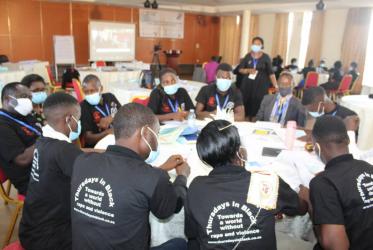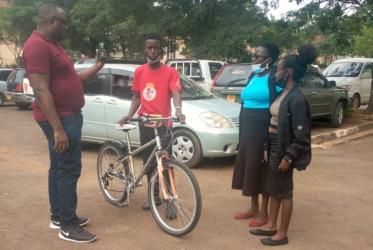Displaying 1 - 20 of 47
South Sudanese Churches shelter populations displaced by floods
23 September 2021
In Uganda, resilience and hope overshadow stigma
31 July 2020
Youth leaders: “We will stop at nothing” to end HIV and violence
17 October 2019
Frontline advocates in Uganda are putting a stop to HIV stigma
16 September 2019














